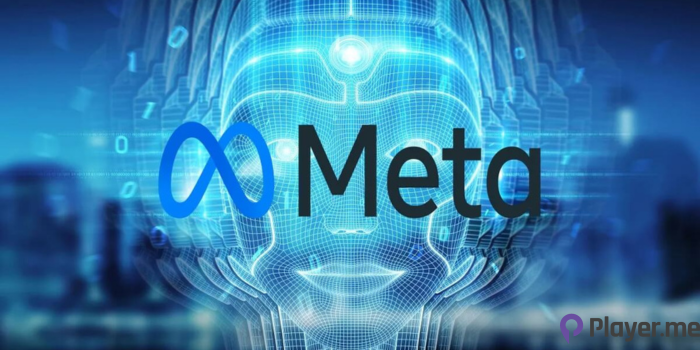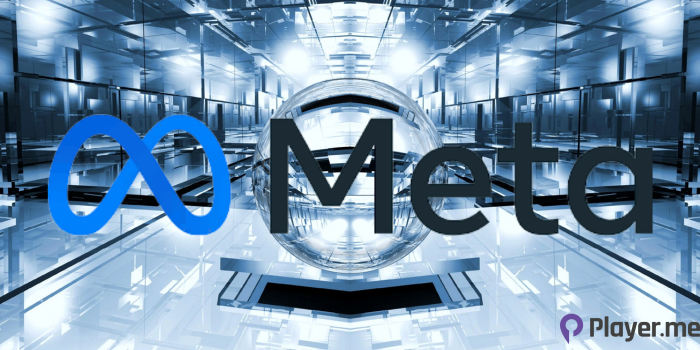In a world increasingly dominated by Artificial Intelligence (AI), Meta Platforms, Inc., formerly known as Facebook, is making a strategic move that could redefine the AI landscape. The tech behemoth is in the process of developing a new, more potent AI system, a move that places it in direct competition with OpenAI’s most advanced models.
The development of this new AI system is a significant milestone for Meta, especially considering the company’s recent setbacks, including the loss of key AI personnel. This article aims to dissect every aspect of Meta’s new AI venture, from its technological advancements to its market implications and ethical considerations.
Also Read: Netflix Signups Remain High, Fueled by Password-Sharing Crackdown
The New AI System: An Overview

Meta’s new AI system is designed to be a game-changer. According to reports, the system aims to be as powerful as OpenAI’s most advanced models. This is a tall order, considering OpenAI’s ChatGPT has set high standards in the field of AI language models. Read https://player.me/revealing-who-owns-chatgpt-in-2023/ to know who owns ChatGPT.
Meta’s new system is expected to surpass its existing Llama 2 model in terms of capabilities. Llama 2, released in July, was a significant upgrade but still needs to catch up when compared to OpenAI’s offerings. The new AI system is not just about power. It’s about versatility and adaptability. Learn more about Llama 2 here.
While specific details are still under wraps, the system is expected to produce sophisticated text, perform complex analysis, and offer a range of other functionalities. These capabilities are designed to help other companies build services, thereby expanding Meta’s reach beyond social media into various sectors, including healthcare, finance, and more.
The Escalating Technology Race
The AI landscape is more competitive than ever, with companies like Google, Microsoft, and Amazon investing heavily in large language models. Meta’s new AI system is the company’s bid to catch up and potentially surpass its competitors. The race is not just about creating the most powerful AI but also about developing AI models that can serve a multitude of purposes, from data analysis to customer service and beyond.
This technology race is not just about corporate competition. It’s shaping the future of AI. With each new development, the capabilities of AI expand, opening new avenues for innovation and application. As AI becomes more integrated into daily life, the race to develop the most advanced systems becomes a race to influence the future of technology itself.
Also Read: Anthropic Launches ChatGPT Competitor: Meet Claude 2!
Timeline and Implementation Strategy

Meta is on an aggressive timeline for its new AI system. The company plans to start training the model in early 2024. This urgency is driven by a need to regain its competitive edge, especially after losing several key AI employees over the past year. The loss of talent has been a setback, but the new AI initiative is seen as a way for Meta to rebound and reposition itself as an AI leader.
The implementation strategy for the new system is equally ambitious. Meta plans to use its own infrastructure for training the model, leveraging its vast data centres and computational resources. This approach allows Meta to maintain greater control over the development process, ensuring the system aligns with the company’s strategic objectives.
Open Source and Legal Implications

One of the most intriguing aspects of Meta’s new AI system is its decision to make it open-source. CEO Mark Zuckerberg believes an open-source approach will make the system more adaptable and cost-effective. However, this strategy has risks. Open-source systems can be modified and used by anyone, potentially leading to misuse or the dissemination of copyright-protected information.
The decision to go open-source also opens up a Pandora’s box of legal challenges. By making the system freely accessible, Meta could face legal issues related to data privacy and intellectual property rights. These risks are a trade-off for the benefits of community collaboration and rapid innovation with open-source projects. Visit https://player.me/category/ai/ to learn more about the latest AI technologies.
Market Dynamics and Business Applications

The AI market is booming, with businesses across sectors looking for AI solutions to optimise their operations. Meta’s new AI system is expected to find applications in various industries, from healthcare and finance to retail and logistics. The system could be used for data analysis, customer service, and developing new products and services.
The business implications of Meta’s new AI system extend beyond mere applications. If successful, the system could set a new standard for AI capabilities, forcing competitors to up their game. This could lead to an acceleration in AI advancements, benefiting not just Meta but the entire industry.
Ethical and Regulatory Landscape
The development of increasingly powerful AI systems brings a host of ethical and regulatory challenges. Questions about data privacy, ethical AI use, and regulatory compliance are more relevant than ever. Companies like Meta are responsible for addressing these issues proactively, ensuring that their AI systems are developed and used ethically.
Regulatory bodies and governments are also taking note of the rapid advancements in AI. Voluntary commitments from leading AI companies, including Meta, aim to manage the risks posed by AI. These commitments focus on safety, security, and trust, marking a critical step toward responsible AI development.
Conclusion
Meta’s new AI initiative is a monumental step in a technology race that shows no signs of slowing down. With plans to develop an AI system that could rival, if not surpass, OpenAI’s most advanced models, Meta is positioning itself as a formidable player in the AI arena. While the initiative is fraught with challenges, from technical complexities to ethical dilemmas, it represents a significant leap toward a future where AI could be even more deeply integrated into our daily lives.
Frequently Asked Questions
What Is Meta’s New AI Initiative All About?
Meta Platforms, Inc. is developing a more powerful AI system to compete with OpenAI’s most advanced models. The new system is expected to be more potent than Meta’s existing Llama 2 model. It aims to produce sophisticated text, perform complex analysis, and offer various other functionalities. The initiative is part of Meta’s strategy to regain its competitive edge in the rapidly evolving AI landscape.
How Does This Development Fit Into the Broader Technology Race in AI?
The development of Meta’s new AI system is a significant milestone in the escalating technology race among major players like Google, Microsoft, and Amazon. Each company strives to develop large language models that serve different purposes, from data analysis to customer service. Meta’s new system is not just about creating a powerful AI. It’s about developing a versatile and adaptable system that can serve many industries.
What Are the Ethical and Regulatory Considerations Surrounding Meta’s New AI System?
As AI systems become more powerful, ethical and regulatory concerns become increasingly relevant. Questions about data privacy, ethical AI use, and regulatory compliance are at the forefront. Meta and other leading AI companies have committed voluntary commitments to safety, security, and trust in AI. These commitments are a critical step toward responsible AI development and aim to manage the risks posed by rapidly advancing AI technologies.





